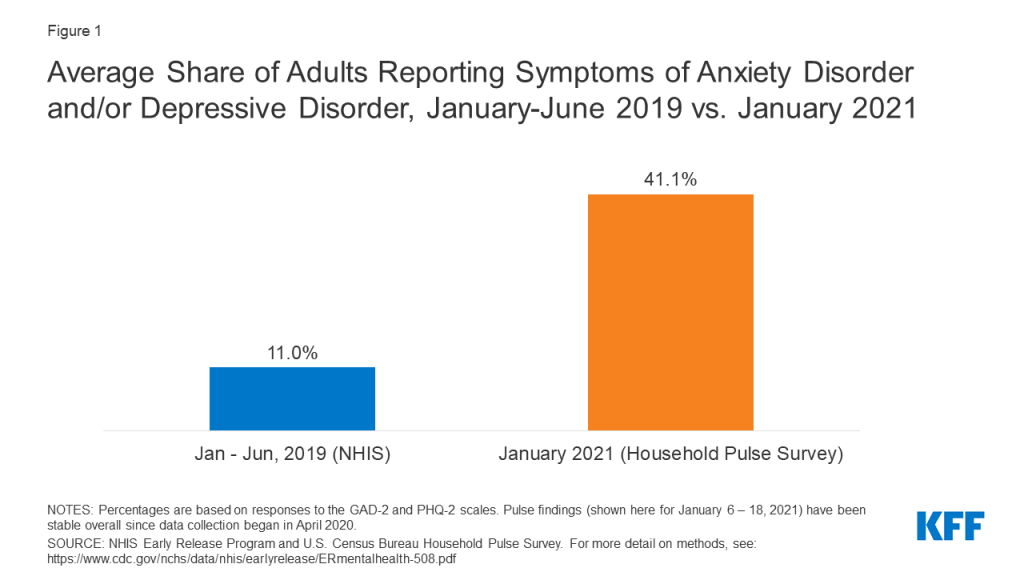What is cognitive behavioral therapy (CBT)?

A few minutes every morning is all you need.
Stay up to date on the world's Headlines and Human Stories. It's fun, it's factual, it's fluff-free.
Mental health awareness is frequently shifting and advancing as we learn more about psychology and different approaches and treatment options become more widely available. In the past 25 years or so, mental health practices have progressed with the rise of teletherapy, equitable insurance coverage for treating mental illness and substance use disorders and the rise of alternative therapies.
There have been public campaigns to de-stigmatize mental illness and make mental health services more publicly available and accessible. And, with the COVID-19 pandemic precipitating increases in feelings of depression, stress and anxiety, these advances in mental health are essential.

One new approach gaining recognition is cognitive behavioral therapy (CBT). This approach to treating mental illness has risen, especially recently, entering its “third wave” in 2004 (though its first wave occurred in the 1970s).
As the 2000s progressed, CBT became increasingly popular, even being labeled a gold standard in psychotherapy by many experts. But what is cognitive behavioral therapy? And how is it different from other well-known forms of therapy?
To answer these questions, TMS spoke with Laurie Singer (M.S., LMFT, BCBA), a licensed psychotherapist, board-certified behavior analyst and family and child therapist, who heads the Laurie Singer Behavioral Services Inc. in Camarillo, California.
What is cognitive behavioral therapy?

CBT is a kind of talk therapy in which the patient works with a mental health counselor (psychotherapist or therapist) in a structured way and over a limited number of sessions. The idea is to help you become aware of your inaccurate or negative thoughts, that way you can better perceive and respond to challenging situations.
Essentially, CBT helps individuals recognize patterns of thinking that contribute to mental afflictions, and it helps to shift those patterns. CBT treats conditions like depression, post-traumatic stress disorder (PTSD) and eating disorders. Still, you don’t necessarily have to be mentally ill for CBT to be an effective tool for improving your mental health.
“Cognitive behavioral therapy is a results-oriented, solution-focused process that relies on an examination of the thoughts and unhealthy behaviors of individuals,” says Singer. “By addressing both the precipitating thoughts process and the behavior itself, this therapeutic approach provides relief from both the symptom and the problematic behavior.
“The process disrupts the unhealthy thought-cycle of behaviors such as self-harm, self-risk or misconduct and replaces it with a newly learned behavior. By building an awareness of both the thought and the specific action into a treatment plan, the return of an anxiety-sufferer to a stable, functioning life can occur remarkably quickly.”
How does CBT compare to more traditional approaches?
CBT can look a lot like traditional counseling, where you sit and talk through your experiences and concerns with a licensed therapist. But, it is set for a fixed term, and the specific approach to talking through what’s bothering you is less free-form.
“Traditional therapies typically require examination of a client’s past,” Singer says. “An individual will receive affirmation on their feelings while in the session, but often no specific plan is written, ‘homework’ is not given, and it’s difficult to track accountability from the client.
“CBT therapeutic processes are more goal-based interventions. The refined, targeted approach utilizes aspects of solution-focused therapy. The goal is to empower individuals to get control of their thoughts, behaviors and lives.”
What contributed to CBT’s popularity?
As a more recent approach to counseling, CBT has skyrocketed in popularity. As we continue to endure the COVID-19 pandemic, CBT has become a viable treatment for COVID-19-induced anxiety. As a tool, CBT addresses negative thinking and perceptions. By encouraging self-monitoring, the patient is empowered to be more rational and deliberate in their responses to these thoughts, curtailing anxiety.
Singer is not surprised by CBT’s popularity as a mental health treatment. “CBT has been scientifically studied, particularly around panic disorder, and research suggests that this form of treatment is effective in alleviating many of the symptoms of panic and restoring one’s ability to resume usual activities,” explains Singer. “CBT is evidence-based and effective. People want to use a method that has evidence that it works.
“In regards to its current popularity, I think it comes down to why a lot things become more popular. Word-of-mouth. People will talk about things that have worked for them. In the case of CBT, which I believe is an extraordinary form of therapy that truly works for many, it’s about individuals wanting to share their stories and successes with others who may be struggling.”
Who stands to benefit the most from CBT?

Although you don’t have to have a diagnosed mental illness to seek methods for bettering your mental health, those who experience mental illness are more likely to derive more significant benefits from treatments like CBT.
Singer explains: “Cognitive-behavioral therapy reflects the importance of both behavioral and thought processes in understanding and controlling anxiety and panic attacks. The focus of treatment is on inadequate, obstructive and damaging behaviors and irrational thought processes that contribute to the continuation of symptoms. For example, uncontrolled worrying about what may or may not happen if you have a panic attack may lead to people avoiding certain situations, which can become debilitating.
“While CBT has been scientifically studied for the treatment of panic disorder, and has been shown to be effective in alleviating many of the symptoms and restoring one’s ability to resume usual activities, it has broader applications. CBT isn’t only used for anxiety but depression, self-injurious behavior and most any maladaptive behavior an individual wants to change. Like any self-focused activity it does require work, commitment and awareness. But in the right setting, with the right team, I’ve seen incredible results with this form of therapy.”
CBT has had an interesting rise to prominence in the mental health community and can be a useful tool. But of course, not everyone responds to every kind of treatment, and there’s no such thing as a one-size-fits-all approach to therapy. Speaking to a mental health professional is the best way to explore what approaches could work well for you.
Have a tip or story? Get in touch with our reporters at tips@themilsource.com




Comments ()